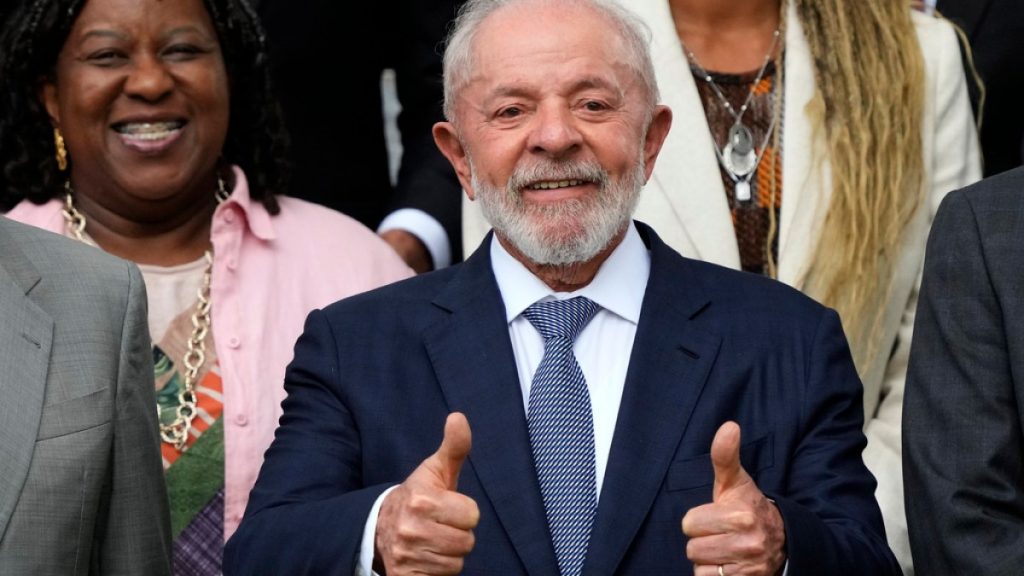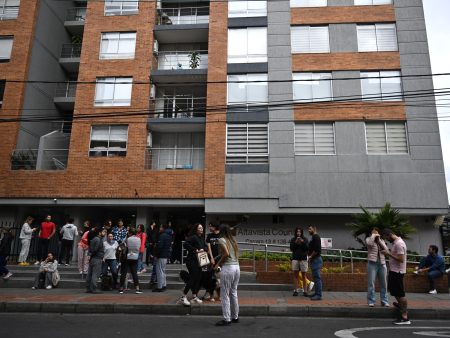The burgeoning trade tensions between the United States and Brazil underscore a broader shift in global economic dynamics and the potential for escalating trade disputes under the “America First” policy of former US President Donald Trump. President Lula da Silva’s firm stance on reciprocal tariffs against potential US trade actions reflects a growing assertiveness among Latin American nations unwilling to passively accept protectionist measures. This stance also serves as a potential template for other countries in the region navigating the complexities of trade relations with the US. Trump’s frequent use of tariff threats as a negotiating tactic, aimed at compelling other nations to align with his administration’s demands on issues ranging from manufacturing to migration, has raised concerns about the stability of international trade and the potential for retaliatory measures that could harm global economic growth.
The potential for a trade war between the US and Brazil, two major economies with significant trade ties, highlights the risks associated with protectionist policies. The US has a trade deficit with Brazil, importing goods like coffee, oil, steel, and orange juice, while exporting products such as energy products, pharmaceuticals, and aircraft parts. While Trump often pointed to trade deficits as evidence of unfair trade practices, economists generally view them as a reflection of broader economic factors like consumer demand and currency fluctuations rather than indicators of an inherently imbalanced trade relationship. Imposing tariffs on Brazilian goods could lead to retaliatory tariffs on US exports, disrupting established trade flows and potentially harming businesses and consumers in both countries. Furthermore, such a trade conflict could create opportunities for other global economic powers, such as China, to strengthen their presence in the region, further complicating the trade landscape.
Trump’s confrontational approach to trade negotiations, exemplified by his tariff threats against Colombia over immigration policy and his proposed tariffs on Canada and Mexico, two of the US’s largest trading partners, has created an atmosphere of uncertainty and unease among US allies. His justification for these tariffs often centered on domestic economic concerns and border security issues, arguing that tariffs would incentivize other countries to cooperate on issues like drug trafficking and illegal immigration. However, these tactics have been met with resistance and counter-threats, raising the specter of trade wars that could have far-reaching consequences for the global economy. The use of tariffs as a tool of coercion in diplomatic disputes has also raised questions about the long-term stability of international trade relations and the potential for escalating tensions.
Lula’s response to Trump’s tariff threats represents a departure from the more conciliatory approach taken by some other Latin American leaders. While Colombian President Gustavo Petro initially resisted Trump’s demands related to immigration, he ultimately backed down in the face of potential tariffs. Lula, however, has made it clear that Brazil will not be bullied into accepting unfair trade practices and is prepared to respond in kind to any US tariffs imposed on Brazilian goods. This firm stance underscores a growing sense of independence and a willingness to defend national interests in the face of pressure from the US. Lula’s leadership could embolden other Latin American countries to adopt similar strategies in their dealings with the US, potentially reshaping the dynamics of trade relations in the region.
The historical context of US intervention and interference in Latin America adds another layer of complexity to the current trade tensions. Trump’s “America First” rhetoric and actions have resonated negatively in a region with a long history of US involvement in its internal affairs. Lula’s emphasis on the importance of a relationship based on mutual respect and sovereignty reflects this historical sensitivity and underlines his commitment to defending Brazil’s interests on the global stage. The legacy of past US interventions, including military actions, political interference, and economic exploitation, has created a deep-seated mistrust of US intentions in the region, making it more challenging to build constructive and mutually beneficial relationships.
The escalating trade tensions between the US and Brazil are symptomatic of broader shifts in the global economic order and the rise of protectionist sentiment. Trump’s aggressive trade policies have disrupted established trade relationships and created uncertainty in the global market. Lula’s strong stance against potential US tariffs signals a growing willingness among Latin American nations to push back against protectionist measures and defend their national interests. The outcome of this trade dispute could have significant implications for the future of US-Latin American relations and the broader trend towards greater regional autonomy in trade policy. The potential for further escalation of trade tensions underscores the need for a more cooperative and rules-based approach to international trade that promotes mutual benefit and avoids the destructive consequences of trade wars.










